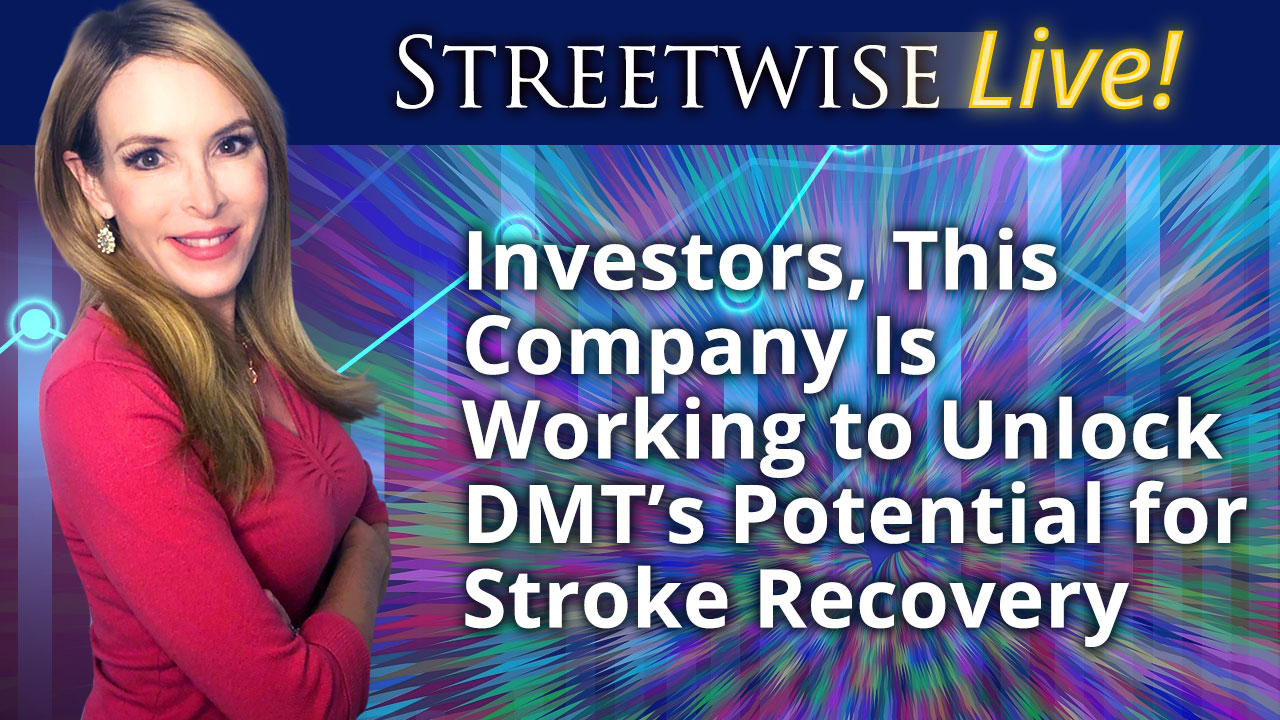You'll want your doctor to follow this for your stroke rehab. And since I'm not medically trained nothing here is to be followed unless your doctor prescribes it. Maybe 50 years from now, hope you are still alive by then. Our fucking failures of stroke associations should already have created protocols for all of these.
ecstasy (19 posts)
LSD (1 post)
magic mushrooms (10 posts)
psilocybin (7 posts)
The latest here:
Pharma Company Working to Unlock Psychedelic Drug's(DMT) Potential for Stroke Recovery
Source: Streetwise Reports (7/9/21)
Algernon Pharmaceuticals CEO Christopher J. Moreau and Dr. David
Nutt, the company's research stroke consultant, discuss Algernon's
upcoming Phase 1 study of DMT for stroke.

The Streetwise Live! broadcast on July 8, 2021, focused on Algernon Pharmaceuticals Inc. (AGN:CSE; AGNPF:OTCQB; AGW:FSE), the only public company currently researching psychedelics to help repair the brain post stroke. The guests, Algernon's CEO Christopher Moreau and its stroke research consultant, Dr. David Nutt, discussed the biopharma's clinical stroke program.
Host Cyndi Edwards kicked off the broadcast by asking Algernon CEO Christopher Moreau why he believes use of the psychedelic drug dimethyltryptamine (DMT) could yield positive results in stroke patients when the many drugs pursued in the past failed. Moreau cited positive DMT preclinical results.
For one, in vitro experiments, in which brain cells were exposed to DMT and various other psychedelics for different periods of time, results in increased density of complexity in the neurons. Also, an animal study showed a sub-psychedelic dose of DMT could treat depression. In a third study, a stroke insult was recreated in rats, which then were treated with DMT. After 30 days, the rats exhibited motor function recovery and a lessened area of dead cells.
"It's all about the science," Moreau added. "The data from the animals makes us hopeful."
Dr. David Nutt, who is consulting with Algernon on stroke research, added that Algernon's approach differs from that of any other company researching potential stroke drugs to date. Instead of trying to reduce damage caused by the lack of oxygen to the brain that occurs with a stroke, Algernon is looking to regrow the brain and accelerate recovery post stroke.
Like psilocybin and LSD, DMT stimulates serotonin 5-HT2A receptors in humans, which are widely distributed throughout the brain and are important for cellular and neuronal activity.
Algernon's "is a conceptually fundamentally different approach," Nutt said. It's seeing "if we can make [stroke recovery] bigger, stronger and faster through this mechanism by stimulating these HT2A receptors."
How hopeful is Nutt, on a scale of 1 to 10, about the prospect of DMT helping stroke patients, Edwards queried. He is about a 3 currently, he said, but with positive data from human trials, he hopes to move up to a 5 or 6.
"We must be realistic, but this is novel," Nutt added. "This is a different way. This is growing the brain, not just stopping the brain dying."
Edwards asked Moreau to discuss Algernon's clinical plan for DMT in stroke patients. A Phase 1 safety and dosage study is slated for October at Hammersmith Medicines Research in England, close to Nutt's location, Moreau noted. The goal for this study is to determine the ideal sub-psychedelic dose to be given and for how long.
In the Phase 2 study, which could start as early as Q1/22 if all goes as planned, Algernon will test DMT on stroke patients. First, Algernon will administer DMT to stroke patients who are in rehab, which usually begins 24 to 48 hours after the event. Next, the biopharma will target patients who are having or just had a stroke to determine how soon they can receive DMT after a stroke and if the effects will be the same as those from treatment during the rehab stage.
Were DMT approved for stroke, Edwards asked Nutt, would people's fear of psychedelics hamper uptake of the drug? Nutt responded that lots of misinformation about DMT and other psychedelics exist and that the best way to counteract that is through positive data. He added that doctors will likely be willing to use DMT given the paucity of current post stroke treatments.
In final comments, Moreau said that Algernon is a drug repurposing company, looking to repurpose DMT. Whereas the drug has not been approved, it has been used for purposes other than treating stroke patients.
"We're advancing [DMT]," he said. "We're going to do it with capital efficiency and speed. And with quality good research, hopefully that will make differences in people's lives. That's what we're trying to do."
Read what other experts are saying about:
No comments:
Post a Comment